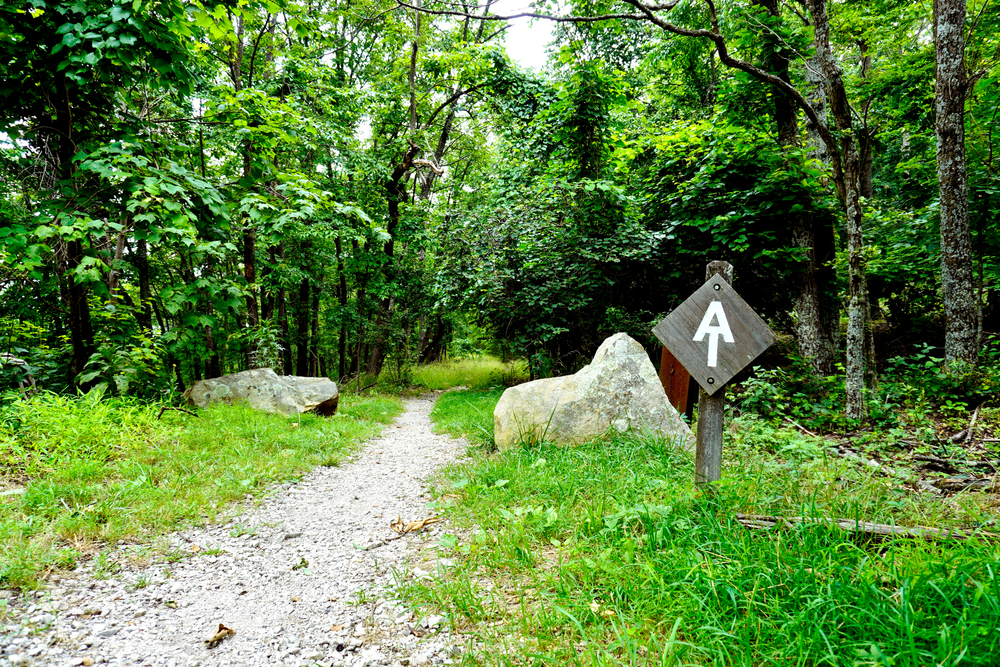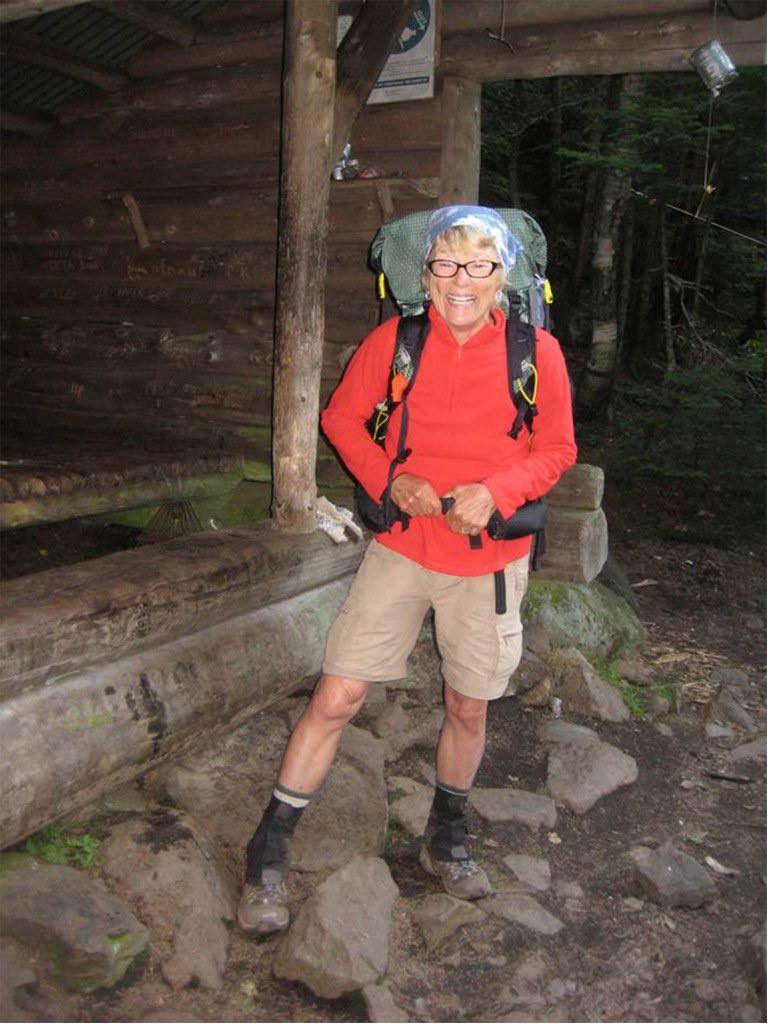Geraldine Largay, a 66-year-old retired Air Force nurse and seasoned hiker, set out on a northbound thru-hike of the Appalachian Trail in July 2013.
Known on the trail as ”Inchworm” for her slow but steady pace, she had been hiking for three months when she mysteriously vanished into the dense wilderness.
It would be more than two years before her body was finally discovered — and among her belongings lay a notebook that that told a gut-wrenching story…
The Appalachian trail
The Appalachian Trail stretches over 2,190 miles from Georgia to Maine, mostly winding beneath a thick canopy of trees that feels like one endless green tunnel. But don’t let the beauty fool you — a thru-hike is grueling.
Hikers usually spend five to seven months on the trail, carrying everything they need, planning resupplies, and camping in all kinds of weather.

Starting in early spring, hikers push themselves to keep moving through sweltering heat, freezing nights, and the constant ache of sore muscles, all just to make it to Maine by late summer.
Geraldine Largay, a 66-year-old retired Air Force nurse, was an experienced hiker who had decided to take on the challenge. Known to her friends as Gerry, she had hiked long trails near her home in Tennessee, completed a course on thru-hiking, and easily made friends along the trail.
Went to use the bathroom
In April 2013, she started walking and hike many hikers, she adopted a trail name: hers was “Inchworm.” Her husband of 42 years, George, didn’t want to take on the grueling hike himself, but he would drive out and meet her along the trail to help with resupplies.
“Hiking the Appalachian Trail and sleeping in tents and wearing the same stuff for three and four days in the rain — not on my bucket list,” he told Brentwood Home Page and continued:
“But she needed to be supported on the hike, because she had limits on what she could carry, so I simply had to say, ‘OK, suck it up. What’s six months in the grand scheme of things?’ So I did it.”

By July 22, Gerry had reached the rugged terrain of western Maine, having already covered more than 1,000 miles of the trail. But she wouldn’t get much farther.
The 66-year-old lady disappeared after leaving the Appalachian Trail to use the bathroom. She became lost in the dense Maine wilderness and was unable to find her way back to the trail.
Gerry immediately tried to reach her husband, George, sending a text around 11:01 a.m, but the remote area offered no cell service.
“In somm trouble. Got off trail to go to br. Now lost. Can u call AMC to c if a trail maintainer can help me. Somewhere north of woods road. XOX,” Gerry wrote in a message that was never received.
Police had only one clue
Geraldine “Gerry” Largay remained missing for over two years, and for months, investigators had only one clue: a photo taken the morning she vanished, showing her near a log lean-to with a corrugated tin roof and a nearby fire pit.
That same morning, her husband George was not far away, stationed about 22 miles from the shelter where Gerry was last seen. Despite a massive search effort involving state police, national park rangers, fire departments, and K9 teams, nothing turned up.
Heavy rains obscured the trail, and Gerry remained a ghost in the wilderness, a face on trail signs for hikers to watch for.
Finally, in October 2015, a forester working for the U.S. Navy — whose land bordered the trail — spotted what he first thought could be a body. Lieutenant Kevin Adam described the moment in his notes:
“The possibilities were: it was a human body; it was animal bones, or if it was a human body, was it Gerry Largay?”
When he reached the site, all doubt disappeared.
“I saw a flattened tent, with a green backpack outside of it and a human skull with what I believed to be a sleeping bag around it. I was 99% certain that this was Gerry Largay’s.”
Moss-covered journal
The campsite was nearly invisible, tucked under thick tree branches that blocked the sky. Gerry had made a small bedding area from pine needles and dirt to keep her tent dry, and even tied a space blanket between branches for extra shelter.
Nearby, evidence showed she had tried to make fires, with charred trees that weren’t the result of lightning.

Inside her makeshift camp were the essentials for survival: maps, a rain jacket, a flashlight that still worked, a space blanket, string, and Ziploc bags. But there were also personal items: a blue baseball cap, dental floss, and a homemade necklace of white stones.
Most striking was her journal, moss-covered and titled:
“George Please Read XOXO.”
The entries revealed Gerry’s harrowing final days. She had wandered for two days after taking a wrong turn across a stream and spent hours trying to find higher ground to regain her bearings. She documented her struggle to survive and continued to write daily notes and letters to her family, even sketching a small calendar to keep track of the passing days.
Her notes continued until August 18 — nearly a month after she initially disappeared.
Heartbreaking last words
Gerry had tried to text her husband on the day she got lost but unfortunately, the texts never sent due to poor or nonexistent cell service.
She tried repeatedly, sending messages 10 more times over the next hour and a half, before finally settling in to camp for the night.
The following day she attempted another text:
“Lost since yesterday. Off trail 3 or 4 miles. Call police for what to do pls. XOX.”
Gerry continued writing in her journal even as her food ran out and her hopes of being rescued faded. Her final entry showed a remarkable sense of peace and acceptance in the face of the inevitable:
“When you find my body, please call my husband George, and my daughter Kerry. It will be the greatest kindness for them to know that I am dead and where you found me – no matter how many years from now.”
Cause of death
Gerry survived at least 26 days after getting lost.
The medical examiner later ruled that Gerry had died from exposure. A later investigation revealed that at least three K9 teams came within 100 yards of Gerry’s final camp during the 2013 search, completely unaware they were so close.
Her family expressed gratitude to the warden service:
“It became apparent from day one that this was personal to them and they would not rest until Gerry was found,” the family said in, asking for privacy “as we continue our grieving process with this new chapter of closure.”
At the site, her family placed a white wooden cross and several mementos where Gerry’s tent once stood. The cross was covered with heartfelt messages etched in black marker—one, written in a child’s hand, simply read, “I wish you were here.”
Gerry may have been lost to the forest, but her story continues to guide and move those who hear it. Her quiet bravery, her love for her family, and her will to survive remind us what it truly means to never give up — even when all hope seems gone.
